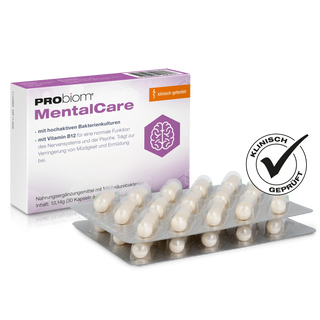Stress is a ubiquitous phenomenon in modern society. Whether at work, in our private life, or due to environmental factors – stress can affect anyone. Stress isn't inherently bad. In some situations, it helps us perform at our best, make decisions, or overcome dangers. However, it becomes problematic when stress persists or when we are unable to process it properly. To better understand stress and deal with it effectively, it is helpful to distinguish between the different types of stress. In this article, we explain in detail the three main types of stress, how they differ, their causes, and how you can actively counteract them.
Acute stress: The short-term alarm reaction
Acute stress is the most common form of stress and usually occurs suddenly. It arises in situations that are perceived as challenging or threatening. These can include important exams, job interviews, an argument with a loved one, or even a dangerous traffic situation. The body immediately switches to what is known as "fight-or-flight" mode. This means that stress hormones such as adrenaline and noradrenaline are released to temporarily increase the body's performance.
Typical symptoms include increased heart rate, rapid breathing, muscle tension, sweating, and heightened alertness. From an evolutionary perspective, this mechanism was essential for survival, such as in the event of a sudden attack by a wild animal. Today, acute stress is rarely life-threatening, but our bodies still react in the same way.
The advantage of this type of stress is that it usually only lasts a short time, allowing the body to recover quickly once the cause of the stress is eliminated. It only becomes dangerous when such acute stress moments occur frequently and there is no adequate recovery time.
Episodic stress: When short-term stress becomes permanent
Episodic stress occurs when acute stress occurs frequently or chronically without sufficient opportunity for the body to recover. People with episodic stress are in a nearly constant state of tension, even when there is no immediate threat. They perceive everyday life as permanently stressful and are irritable, forgetful, or overwhelmed.
What's typical about episodic stress is that it's often associated with specific life situations or personality types. Perfectionists, busy people, or people with a tendency toward over-responsibility are particularly susceptible. Work-related pressure, family obligations, or social conflicts can also contribute to this type of stress.
On a physical level, episodic stress manifests itself similarly to acute stress, but the symptoms occur more frequently or are persistent: chronic fatigue, headaches, tension, gastrointestinal problems, or sleep disturbances are not uncommon. Psychological stress can also increase, leading to irritability, anxiety, or depressive moods.
Episodic stress is a clear warning signal from the body. Those who are constantly running at full speed risk long-term health damage. Therefore, it's important to take timely countermeasures, for example, through relaxation techniques, time management, or psychological counseling.
Chronic stress: The invisible danger
Chronic stress is the most dangerous and difficult to detect form of stress. It occurs when stress persists for weeks, months, or even years without adequate recovery. Unlike acute or episodic stress, the stress response here is no longer a temporary reaction, but a permanent condition that can become deeply embedded in the nervous system.
Chronic stress can stem from a variety of sources: unresolved family or work-related conflicts, financial worries, overwhelming caregiving responsibilities, or traumatic experiences. Often, it's not just a single factor, but a combination of several stressful elements that trigger this condition.
The symptoms are complex and can be both physical and psychological. These include exhaustion, insomnia, cardiovascular problems, hormonal imbalances, digestive disorders, immune deficiency, and mental illnesses such as burnout or depression. Because chronic stress weakens the immune system over a long period of time, susceptibility to infections and other illnesses also increases.
Another problem: Those affected often don't consciously perceive this state of stress. They become accustomed to constantly "functioning" and ignore their body's warning signals. This is why education is so important to prevent chronic stress or detect it early.
How to effectively deal with stress
Regardless of the type of stress, it's crucial to develop strategies to better cope with it. There's no one-size-fits-all solution. Everyone reacts to stress differently and needs individual coping methods. It's important to identify your own stressors and give yourself regular time off.
Exercise is a proven way to reduce stress. Sport helps reduce stress hormones and release feel-good hormones. Relaxation techniques such as progressive muscle relaxation, meditation, or yoga can also help activate the parasympathetic nervous system, thus putting the body into a state of calm.
Nutrition also plays a role. A balanced diet supports physical resilience. At the same time, you should ensure you get enough sleep, as regeneration is the natural antidote to stress. Talking to trusted people can provide relief, as can professional help through coaching or psychotherapy.
Conclusion: Stress is not the same as stress
Stress is a complex phenomenon that can occur in a variety of forms. Distinguishing between acute, episodic, and chronic stress helps you better understand your own stressors and take targeted countermeasures. While acute stress can even be helpful in the short term, episodic and chronic stress pose a serious threat to mental and physical health. This makes it all the more important to treat yourself with care, take warning signs seriously, and develop appropriate coping strategies early on.













